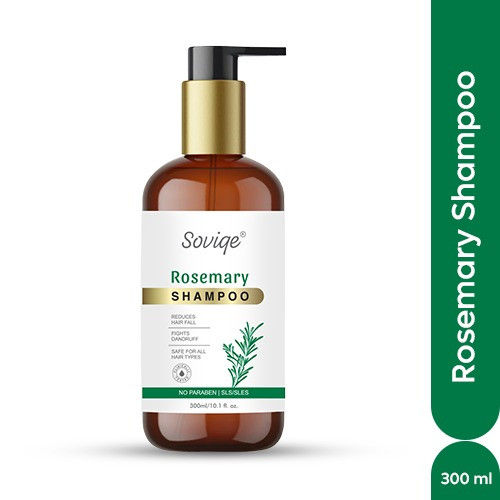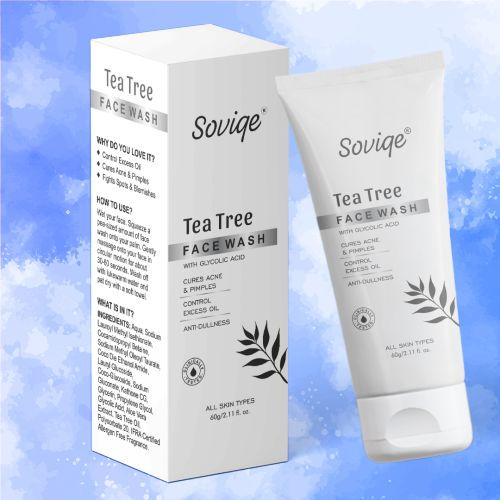Buy Haircare Product: What You Need to Know First
- Karan Kumar
- Jul 19, 2025
- 5 min read

Healthy hair is not just about beauty—it reflects your overall care and lifestyle. Whether your hair is curly, straight, wavy, oily, dry, or somewhere in between, choosing the right products is essential. With so many options available, it’s easy to feel overwhelmed when trying to buy haircare product that truly works for you.
This blog will guide you step-by-step on what to consider before making a purchase, so you avoid wasting money and, more importantly, avoid damaging your hair. Let’s get started.
Explore the Best Hair Care Products for Men & Women
The dream of having voluminous, healthy, strong hair can become true today with the natural and safe hair care products available in the market. Hair is not just about aesthetics, and certainly not just a simple part of our body. It is the aspect that reflects your health, routine, and even your lifestyle.Anyone who wants healthy hair should understand their hair’s needs and transform their hair care routine accordingly. Whether you’re looking to repair damage, enhance natural texture, control frizz, or simply keep your scalp healthy, buying the right products will make a clear difference.
1. Know Your Hair Type
The first and most important rule before you buy haircare product is knowing your hair type. You wouldn’t wear shoes that don’t fit your size—so why choose products not meant for your hair?
Here’s a quick breakdown:
Oily Hair: If your scalp feels greasy even a day after washing, look for clarifying shampoos and lightweight conditioners.
Dry Hair: Feels rough, looks dull, and breaks easily. Go for deeply hydrating products with oils or butters.
Curly Hair: Prone to dryness and frizz. Choose sulfate-free shampoos, curl creams, and nourishing conditioners.
Straight Hair: Can get oily at the roots. Volumizing shampoos and light serums are your go-to.
Wavy Hair: Needs light hydration without heavy buildup. Balanced moisturizing products work best.
Color-treated Hair: Needs color-safe, sulphate-free formulas with protein and moisture.
By understanding your hair, you eliminate guesswork and only choose products that serve your exact needs.
2. Read the Ingredients Carefully
Many people don’t check what goes inside the bottle when they buy haircare product. But the ingredients determine whether a product will help or harm your hair in the long run.
Avoid harmful chemicals such as:
Sulfates (like SLS or SLES): Strip natural oils, making hair dry and brittle.
Parabens: Used as preservatives, but may irritate the scalp.
Silicones: Can cause buildup over time and reduce moisture absorption.
Artificial Fragrances: May cause scalp sensitivity or itching.
Look for natural or nourishing ingredients such as:
Coconut Oil
Shea Butter
Argan Oil
Aloe Vera
Tea Tree Oil
Biotin or Keratin
These not only clean your hair but also feed your scalp and strands with nutrients.
3. Choose Products That Match Your Hair Goals
When you buy haircare product, don’t just buy what’s trending or what your friend recommends. Focus on your hair goals.
Ask yourself:
Do I want to reduce frizz?
Do I want to stop hair fall?
Do I want to grow my hair longer?
Do I need volume or smoothness?
Depending on your goals, here’s what you should look for:
Frizz Control – Anti-frizz serums, argan oil-based conditioners.
Hair Growth – Onion oil, biotin-enriched products, scalp tonics.
Damage Repair – Keratin masks, protein-rich shampoos.
Volume Boost – Light, volumizing shampoos with rice water or collagen.
Always align your product choice with what your hair truly needs.
4. Consider Your Lifestyle
Your daily routine and lifestyle also affect your product choices. For example:
Busy Schedule? Dry shampoo, leave-in conditioner, or all-in-one products might be ideal.
Regular Heat Styling? Choose heat-protection sprays and strengthening serums.
Work Outdoors? Products with UV protection and dust barrier formulas will help.
Swim Often? Use clarifying shampoos and deep conditioning treatments.
So when you buy haircare product, think beyond just hair type—think about your life habits, too.
5. Don’t Be Fooled by Fancy Packaging
Let’s be honest: attractive packaging can easily tempt us. But don’t let the bottle design or scent be the reason you choose a product.
Instead, when you buy haircare product, focus on:
Product reviews
Brand transparency
Ingredient list
Hair type compatibility
Packaging is just the cover. The real value lies in what the product can do for your hair.
6. Check Reviews and Ratings
Before you click “Add to Cart,” make it a habit to read what others have experienced. Reviews help you understand how the product works in real life.
While reading, focus on:
Reviews from people with a similar hair type
Comments on product performance over time
Warnings about side effects like hair fall or irritation
This extra step takes just five minutes but saves you money and hair trouble later.
7. Don’t Overload Your Hair with Products
One of the biggest mistakes people make when they buy haircare product is buying too many of them. Remember, more products don’t always mean better care.
Stick to the basics:
Shampoo
Conditioner
Serum or oil
Mask (weekly)
Start small. Once you know what works, you can explore additional treatments or styling products.
8. Understand the Price vs. Quality Balance
High price doesn’t always mean high quality. At the same time, super cheap products may contain poor-quality ingredients.
Here’s how to judge smartly:
Look at the cost per use. A slightly expensive product that lasts long can be more economical.
Check the concentration of ingredients. If active ingredients are listed early, the product is more effective.
Go for value-based purchases, not hype-based ones.
Your goal should be to buy haircare product that is both effective and budget-friendly.
9. Do a Patch Test First
Even if a product seems perfect, always test it on a small area before full use—especially with new oils, serums, or shampoos. Scalp irritation, itching, or excessive dryness could be signs that a product doesn’t suit you.
This is especially important for:
People with sensitive skin
Those trying natural or herbal formulations
Color-treated hair users
Better safe than sorry.
10. Track What Works for You
Everyone’s hair is different. Just because a product has glowing reviews doesn't mean it will work for you. Keep track of:
How your hair feels after use
How often you need to wash
Any hair fall or buildup signs
If styling becomes easier or harder
By tracking results, you’ll be able to identify patterns and stick to what truly benefits your hair.
Conclusion
Buying the right haircare product doesn’t have to be confusing. It just takes a little bit of awareness and planning. When you buy haircare product, think beyond just brand names or prices. Focus on what your hair truly needs.
Understand your hair type, study ingredients, read reviews, and match products to your lifestyle. This smart and simple approach will save your hair from damage, your wallet from waste, and give you the confidence of beautiful, healthy hair every day.

Comments